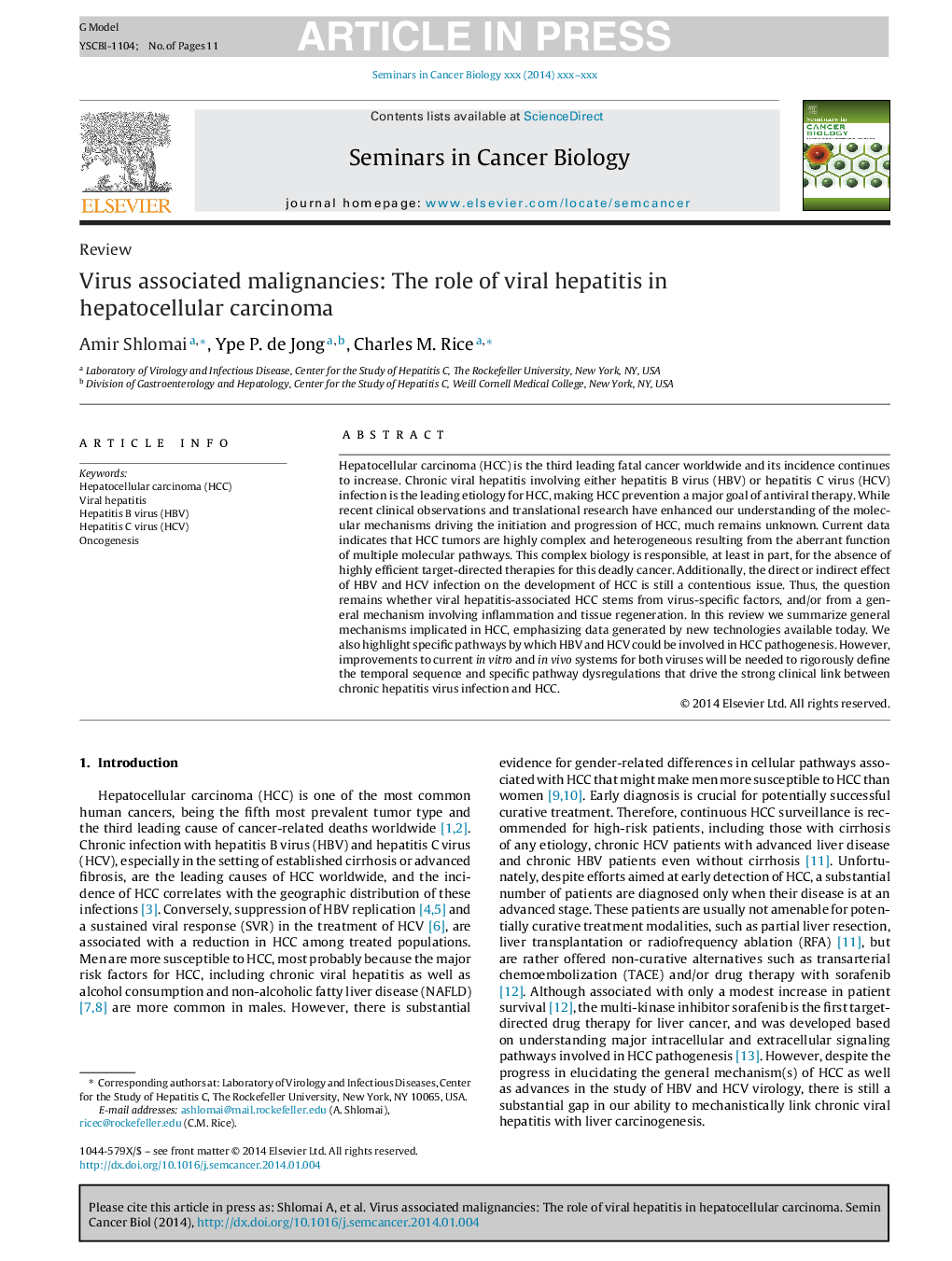| Article ID | Journal | Published Year | Pages | File Type |
|---|---|---|---|---|
| 8362377 | Seminars in Cancer Biology | 2014 | 11 Pages |
Abstract
Hepatocellular carcinoma (HCC) is the third leading fatal cancer worldwide and its incidence continues to increase. Chronic viral hepatitis involving either hepatitis B virus (HBV) or hepatitis C virus (HCV) infection is the leading etiology for HCC, making HCC prevention a major goal of antiviral therapy. While recent clinical observations and translational research have enhanced our understanding of the molecular mechanisms driving the initiation and progression of HCC, much remains unknown. Current data indicates that HCC tumors are highly complex and heterogeneous resulting from the aberrant function of multiple molecular pathways. This complex biology is responsible, at least in part, for the absence of highly efficient target-directed therapies for this deadly cancer. Additionally, the direct or indirect effect of HBV and HCV infection on the development of HCC is still a contentious issue. Thus, the question remains whether viral hepatitis-associated HCC stems from virus-specific factors, and/or from a general mechanism involving inflammation and tissue regeneration. In this review we summarize general mechanisms implicated in HCC, emphasizing data generated by new technologies available today. We also highlight specific pathways by which HBV and HCV could be involved in HCC pathogenesis. However, improvements to current in vitro and in vivo systems for both viruses will be needed to rigorously define the temporal sequence and specific pathway dysregulations that drive the strong clinical link between chronic hepatitis virus infection and HCC.
Keywords
Related Topics
Life Sciences
Biochemistry, Genetics and Molecular Biology
Biochemistry
Authors
Amir Shlomai, Ype P. de Jong, Charles M. Rice,
